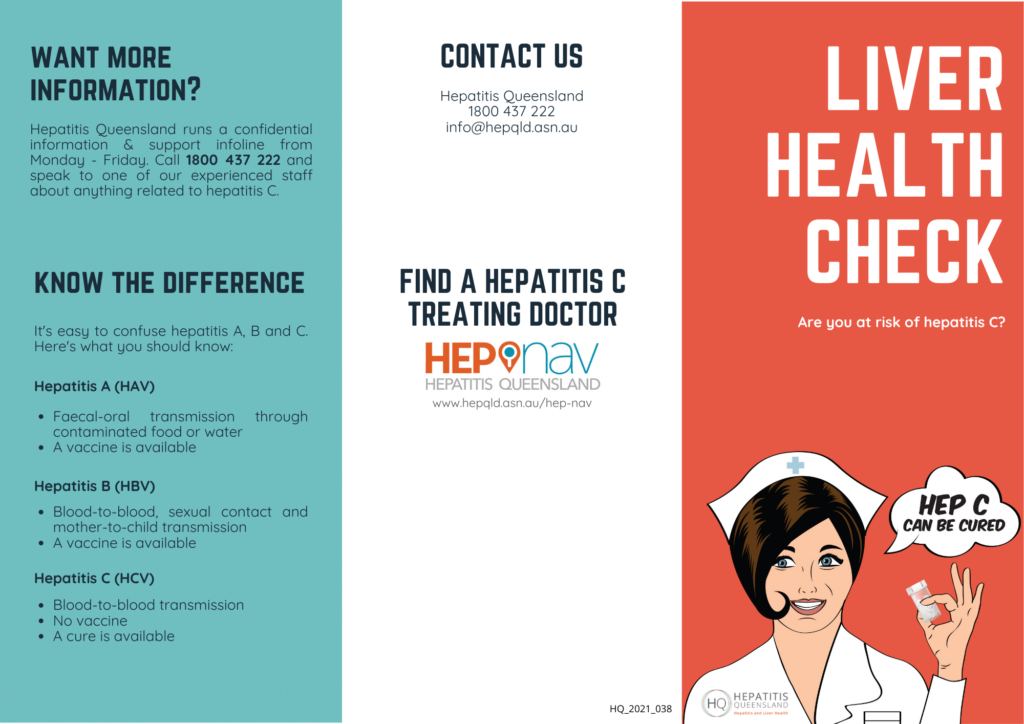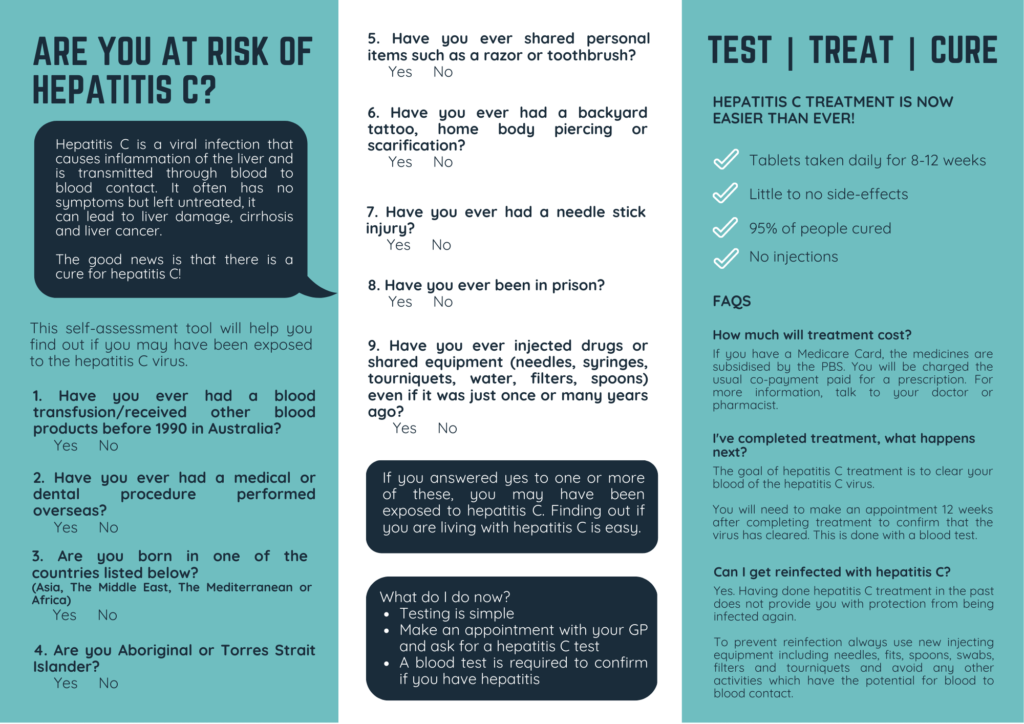Liver health check - Are you at risk of hepatitis C?
Are you at risk of hepatitis C?
Hepatitis C is a viral infection that causes inflammation of the liver and is transmitted through blood to blood contact. It often has no symptoms but left untreated, it can lead to liver damage, cirrhosis and liver cancer.
The good news is that there is a cure for hepatitis C!
This self-assessment tool will help you find out if you may have been exposed to the hepatitis C virus.
- Have you ever had a blood transfusion/received other blood products before 1990 in Australia?
- Have you ever had a medical or dental procedure performed overseas?
- Were you born in Asia, the Middle East, the Mediterranean or Africa?
- Are you Aboriginal or Torres Strait Islander?
- Have you ever shared personal items such as a razor or toothbrush?
- Have you ever had a backyard tattoo, home body piercing or scarification?
- Have you ever had a needle stick injury?
- Have you ever been in prison?
- Have you ever injected drugs or shared equipment (needles, syringes, tourniquets, water, filters, spoons) even if it was just once or many years ago?
If you answered yes to one or more of these, you may have been exposed to hepatitis C. Finding out if you are living with hepatitis C is easy.
What do I do now?
- Testing is simple
- Make an appointment with your GP and ask for a hepatitis C test
- A blood test is required to confirm if you have hepatitis?
Hepatitis C treatment is now easier than ever
- Tablets taken daily for 8-12 weeks
- Little to no side-effects
- 95% of people cured
- No injections
Frequently asked questions
How much will treatment cost?
If you have a Medicare Card, the medicines are subsidised by the Government. You will be charged the usual co-payment paid for a prescription. For more information, talk to your doctor or pharmacist.
I’ve completed treatment, what happens next?
The goal of hepatitis C treatment is to clear your blood of the hepatitis C virus.
You will need to make an appointment after completing treatment to confirm that the virus has cleared. This is done with a blood test.
Can I get reinfected with hepatitis C?
Yes. Having done hepatitis C treatment in the past does not provide you with protection from being infected again.
To prevent reinfection always use new inject equipment including needles, fits, spoons, swabs, filters, and tourniquets and avoid any other activities which have the potential for blood to blood contact.
Know the difference
It’s easy to confuse hepatitis A, B and C. Here’s what you should know:
Hepatitis A (HAV)
- Faecal-oral transmission through contaminated food to water
- A vaccine is available
Hepatitis B (HBV)
- Blood-to-blood, sexual contact and mother-to-child transmission
- A vaccine is available
Hepatitis C (HCV)
- Blood-to-blood transmission
- No vaccine
- A cure is available
Want more information?
Hepatitis Queensland runs a confidential information and support Infoline from Monday to Friday. Call 1800 437 222 and speak to one of our experienced staff about anything related to hepatitis C.


